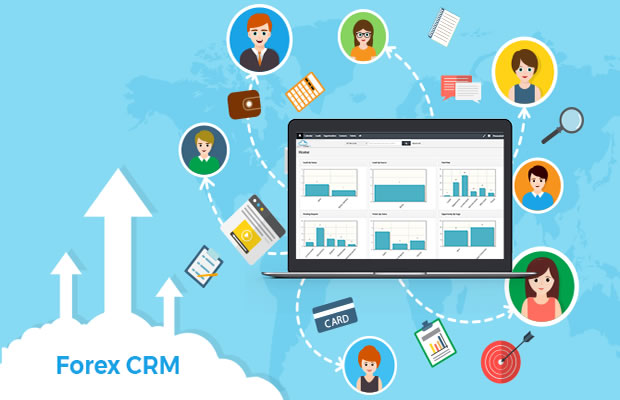The Forex market plays a bigger and bigger role in how your brokerage operates as an expanding company. However, keeping such a sizable and diverse clientele poses particular difficulties for managing traders’ accounts. According to a recent survey, few brokers utilizing the Metatrader 4 (MT4) platform have a CRM system for their clients, even if many use third-party software to help their operational procedures. As a result, brokers are increasingly choosing to outsource their Forex CRMs. This shouldn’t be shocking, given the value of maintaining strong customer relationships. Actually, it makes sense from both perspectives: why would a broker dedicate expensive technical resources to fixing account management issues when they can outsource these jobs at a low cost?
What is Forex CRM?
A set of software tools known as CRM for Forex brokers is used by Forex brokerage companies to manage their connections with their traders. Customers can access their accounts more easily from any computer or mobile device with an internet connection, thanks to the fact that the majority of CRMs in the forex and other industries are web-based platforms. A CRM’s primary objective is to simplify account management while upholding security standards. This aim includes coordinating clients’ trading activity, enabling them to update personal profile information, offering complete customer service, and working toward greater transparency.
What Forex CRM does best?
Forex CRMs excel at two specific activities: updating account profiles and processing trades based on client demands (or withdrawals). The trader’s trading strategy, preferred currency pairs or period, and email address may all have changed. These are some of the frequent adjustments that traders make to their accounts. Through a web-based instant messaging platform, brokers and traders can communicate directly with some Forex CRMs. Eliminating middlemen helps save time and money for brokers and traders (i.e., phone support). Clients can place trades through their Forex CRM without having to phone the broker or launch an MT4 terminal window on their computer screen through trading requests, which many brokers believe to be of great value.
Advantages of Forex CRM:
Enhanced account security: Clients don’t have to worry about fraud when sending requests through the FX CRM; they just need to enter their login information. Because requests can be verified in one location, this lowers identity theft and credit card fraud.
Greater efficiency: By enabling customers to withdraw money and modify their preferences without phoning you, you may handle requests more rapidly while still adhering to internal rules, which boosts income and cuts down on time.
Data gathering: As brokers gather and compile data regarding the trading habits of their clients, they might use it to develop proactive market forecasts. Through this type of data mining, they could be able to get superior results.
Enhanced openness: Clients feel more at ease opening accounts and exchanging assets when you are open with them. All conversations can be sent publicly through a CRM for Forex so that traders can access them whenever they choose.
Cost-effectiveness: Handling client account management through a third party eliminates the need to establish and maintain an online system. Even with monthly service fees involved, many brokers have found that the cost reductions alone make it worthwhile.
Risk management: Managing risks is an essential aspect of being a broker, but it also necessitates keeping up with changing legal requirements. Forex CRMs have employees who always keep an eye on the market and the law to ensure your actions stay lawful.
Using Forex CRM software for your brokerage has many benefits, including improved customer loyalty, efficiency, and security. The needs and size of your business will determine whether you decide to outsource the service or perform it internally. However, the majority of brokers concur that this kind of method is crucial for preserving connections with trading clients.






![Vintanse Group Opinie: Wpływ technologii na internetowe platformy handlowe [vintanseg.com]](/wp-content/uploads/2024/01/Vintanse-Group-Opinie-Wplyw-technologii-na-internetowe-platformy-handlowe-vintanseg-com-Google-Docs-218x150.png)











